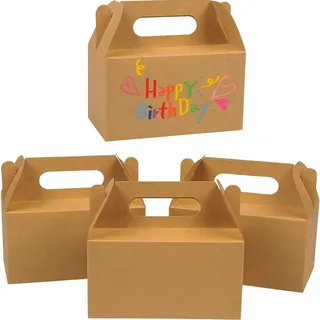In the dynamic world of real estate, commercial units play a crucial role in the business landscape. These properties are designed to support various business activities, ranging from retail and office spaces to industrial operations. Understanding commercial units, their types, and their significance can provide valuable insights for investors, business owners, and property managers. This comprehensive guide explores the essentials of commercial units, offering a deep dive into their features, classifications, and market trends.
What Are Commercial Units?
Commercial units are real estate properties specifically designed for business purposes. Unlike residential properties, which are used for living, commercial units cater to businesses and can include office spaces, retail outlets, warehouses, and industrial facilities. These units are typically leased or purchased by businesses for operations such as selling goods, providing services, or manufacturing products.
Types of Commercial Units
Commercial units come in various forms, each serving a specific function within the business ecosystem. Here are some common types:
Retail Units: These are spaces used for selling goods directly to consumers. They include storefronts, shopping centers, and malls. Retail units are often located in high-traffic areas to attract a large number of customers.
Office Spaces: These units are designed for administrative and professional work. They can range from small office suites to large corporate buildings. Office spaces are often located in business districts and may include amenities such as conference rooms and communal areas.
Industrial Units: These properties are used for manufacturing, warehousing, or distribution. Industrial units often include features like high ceilings, loading docks, and ample floor space to accommodate machinery and inventory.
Hospitality Units: This category includes hotels, motels, and other accommodation establishments. Hospitality units are designed to provide temporary lodging and often include amenities such as dining facilities and recreational areas.
Mixed-Use Units: These properties combine elements of retail, office, and residential spaces in a single development. Mixed-use units are popular in urban areas where space is limited, and they offer a blend of convenience and functionality.
Key Features of Commercial Units
Commercial units are characterized by several features that differentiate them from residential properties:
- Zoning Regulations: Commercial units must comply with local zoning laws, which dictate how properties can be used. Zoning regulations ensure that commercial activities do not negatively impact surrounding residential areas.
- Lease Terms: Commercial leases are typically longer than residential leases and may include provisions for rent increases, maintenance responsibilities, and property improvements.
- Customization: Many commercial units offer customization options to meet the specific needs of businesses. This can include alterations to layout, installation of specialized equipment, or branding opportunities.
- Accessibility: Commercial units often prioritize accessibility for both customers and employees. Features such as ample parking, easy access to public transportation, and compliance with the Americans with Disabilities Act (ADA) are essential.
Market Trends and Considerations
The commercial real estate market is influenced by various factors, including economic conditions, technological advancements, and changing consumer behaviors. Here are some key trends and considerations:
- E-Commerce Impact: The rise of e-commerce has significantly impacted retail units. Many brick-and-mortar stores are adapting by integrating online sales channels and enhancing their physical presence with experiential features.
- Flexible Workspaces: The demand for flexible office spaces, such as co-working environments and serviced offices, has increased. Businesses are seeking adaptable solutions that offer scalability and cost-efficiency.
- Sustainability: There is a growing emphasis on sustainable and energy-efficient commercial properties. Green building certifications, renewable energy sources, and environmentally friendly practices are becoming standard in the industry.
- Urbanization: As cities expand and populations grow, there is a shift towards mixed-use developments and urban regeneration projects. These projects aim to create vibrant, multi-functional spaces that meet the needs of modern businesses and residents.
Investing in Commercial Units
Investing in commercial units can be a lucrative opportunity, but it requires careful consideration and due diligence. Here are some tips for potential investors:
Research the Market: Understand the local market conditions, including demand, rental rates, and vacancy rates. Analyze trends and forecasts to make informed investment decisions.
Evaluate Location: Location is crucial for commercial properties. Consider factors such as foot traffic, proximity to major transportation routes, and the overall economic health of the area.
Assess Property Condition: Conduct a thorough inspection of the property to identify any potential issues or necessary repairs. Evaluate the building’s infrastructure, compliance with regulations, and overall condition.
Review Financials: Examine the financial aspects of the investment, including potential rental income, operating expenses, and return on investment (ROI). Ensure that the investment aligns with your financial goals.
Consult Professionals: Work with real estate agents, property managers, and legal advisors who specialize in commercial real estate. Their expertise can help navigate complex transactions and ensure a successful investment.
Conclusion
Commercial units are a fundamental component of the business and real estate landscape. Understanding the different types of commercial units, their features, and market trends can provide valuable insights for investors, business owners, and property managers. Explore Further to gain a comprehensive understanding of commercial real estate and how it can impact your investment and management strategies. Whether you are looking to lease a space for your business or invest in commercial real estate, a comprehensive understanding of these properties will help you make informed decisions and capitalize on opportunities in this dynamic sector.








